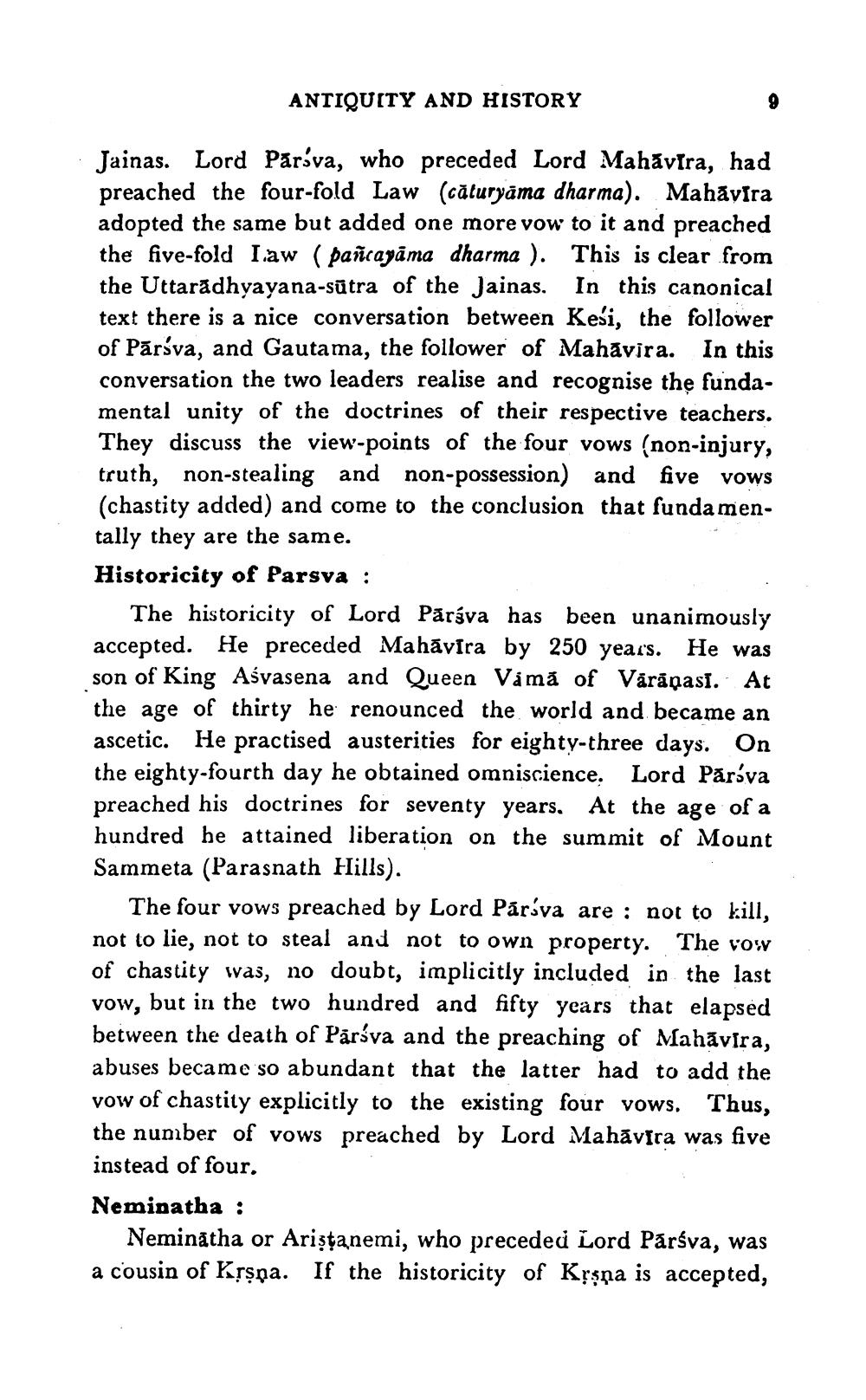________________
ANTIQUITY AND HISTORY
Jainas. Lord Paráva, who preceded Lord Mahavira, had preached the four-fold Law (căturyāma dharma). Mahāvīra adopted the same but added one more vow to it and preached the five-fold Law ( pañcayāma dharma ). This is clear from the Uttarādhyayana-sūtra of the Jainas. In this canonical text there is a nice conversation between Kesi, the follower of Pārsva, and Gautama, the follower of Mahavira. In this conversation the two leaders realise and recognise the fundamental unity of the doctrines of their respective teachers. They discuss the view-points of the four vows (non-injury, truth, non-stealing and non-possession) and five vows (chastity added) and come to the conclusion that fundamentally they are the same. Historicity of Parsva :
The historicity of Lord Páráva has been unanimously accepted. He preceded Mahāvīra by 250 years. He was son of King Aśvasena and Queen Vámă of Vārāṇasī. At the age of thirty he renounced the world and became an ascetic. He practised austerities for eighty-three days. On the eighty-fourth day he obtained omniscience. Lord Päráva preached his doctrines for seventy years. At the age of a hundred he attained liberation on the summit of Mount Sammeta (Parasnath Hills).
The four vows preached by Lord Páráva are : not to kill, not to lie, not to steal and not to own property. The vow of chastity was, no doubt, implicitly included in the last vow, but in the two hundred and fifty years that elapsed between the death of Päráva and the preaching of Mahāvíra, abuses became so abundant that the latter had to add the vow of chastity explicitly to the existing four vows. Thus, the number of vows preached by Lord Mahāvīra was five instead of four. Neminatha :
Neminátha or Aristanemi, who preceded Lord Parśva, was a cousin of Krşpa. If the historicity of Krşņa is accepted,




